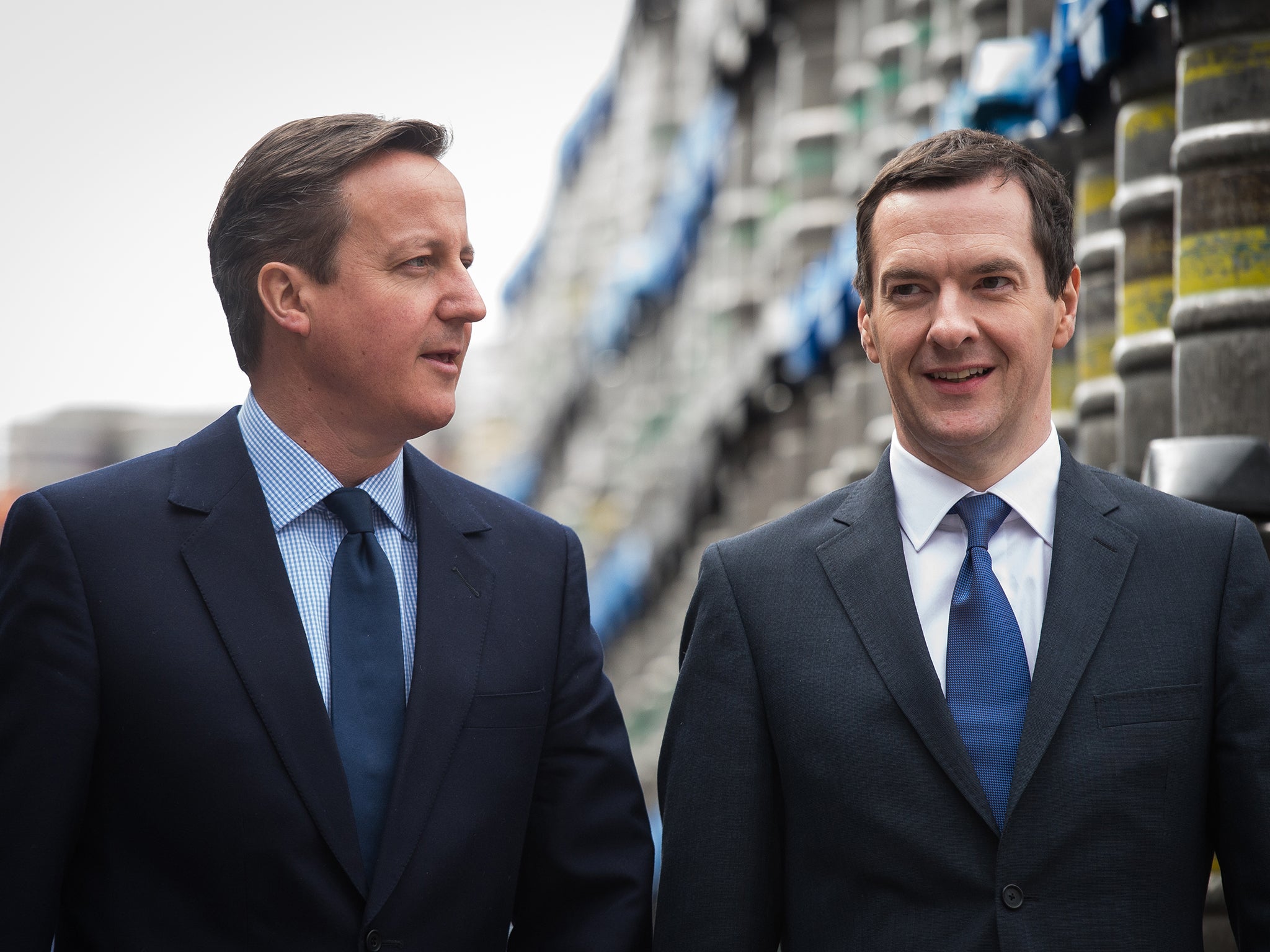The Government’s attack on local democracy should be resisted
It seems that Tory respect for devolving power ceases if local voters opt for policies with which Tories disagree strongly

David Cameron and his preferred successor, George Osborne, promise a “devolution revolution”. The Prime Minister used the phrase in his response to the decision by the Scottish people in the independence referendum last year. He repeated the “vow” he had made before the vote to hand over more powers to the Scottish Parliament, but made it part of a thoroughgoing programme to hand decision-making to the nations, regions and smaller platoons of the United Kingdom.
The Chancellor used it in his speech to the Conservative Party conference this year when he announced he would restore to local councils the power to set their own business rates.
Yet the sincerity of their commitment to devolution must be questioned. It suits them to give the Scottish government more power to raise taxes, which would be unpopular and might force the Scottish National Party to confront some of the tough decisions for which it currently blames Westminster. Giving local councils power over business rates is welcome in principle but the important questions are those of fairness between richer and poorer areas.
The true nature of the Tories’ attitude to devolving power is revealed, however, by our report today, on the attempt by the Government to ban “ethical” investment by local councils.
Greg Clark, the Communities and Local Government Secretary, plans to change the rules to prevent councils using their pension funds, purchases and contracts for “politically motivated boycott and divestment campaigns”. He is particularly concerned about campaigns against Israeli settlements in the occupied West Bank, the arms trade, carbon-intensive industries and tobacco products. He wants new guidelines to stop elected councillors operating “municipal foreign and defence policies”.
Mr Clark’s very mildness should not be allowed to distract from this new and unwelcome attempt to constrain local democracy, which exposes the hollowness of Mr Cameron’s rhetoric. Some of the campaigns that Mr Clark mentions are worrying. While this newspaper supports pressure on Israel to reverse the expansion of illegal settlements in the occupied territories, we fear that parts of the wider Boycott, Divestment and Sanctions Movement shade into denying Israel’s right to exist and even into anti-Semitism. However, provided the law against racism and anti-Semitism is respected, the point of devolution is to allow decisions such as these, particularly when controversial, to be made by local people and their elected representatives.
For the Conservatives, campaigns for “ethical” investment by local government have echoes of the struggles of the Thatcher government against hard-left Labour councils. It seems that Tory respect for local democracy ceases if local voters opt for policies with which Tories disagree strongly.
So, these are not new arguments. Just last year the Tory-controlled Local Government Association took legal advice, from Nigel Giffin QC, about its members’ responsibilities in pension-fund investments. Such decisions must be “directed towards … what is best for the financial position of the fund”, they were advised. “However,” Mr Giffin went on, “the precise choice of investment may be influenced by wider social, ethical or environmental considerations, so long as that does not risk material financial detriment to the fund.”
That seems a reasonable expression of the principle that balances the rights of council-tax payers generally and democratic decisions about causes that local people want to support. The “devolution revolution” is merely a slogan, which is contradicted in this area by the Government’s attempt to tighten central control. This attack on local democracy should be resisted.

Join our commenting forum
Join thought-provoking conversations, follow other Independent readers and see their replies